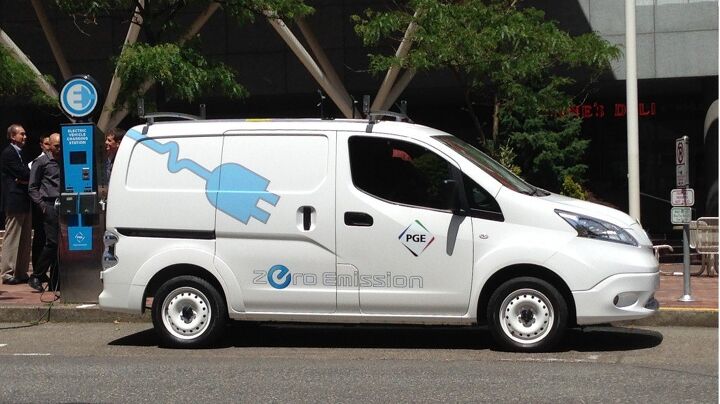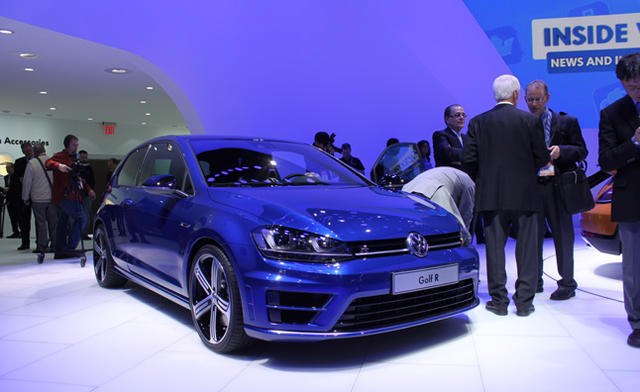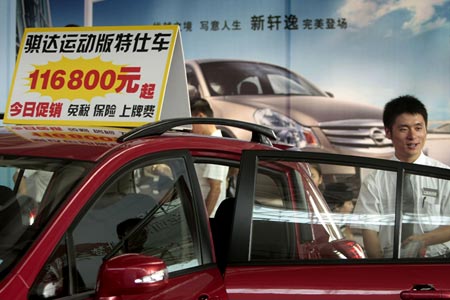#MarketResearch
Nobody Cares About or Uses the Premium Technology in High-end Luxury Cars
Fifty years ago the equipment disparity between luxury vehicles and economy cars was vast, but things are different today. With the exception of nicer materials and cutting-edge technology, you can get essentially everything you would want in a basic hatchback. We’re not talking about power windows and air conditioning either; the technological trickle-down now includes things like active safety systems, heated seats, in-car navigation, multiple driving modes, and more.
As it turns out, the great unwashed masses of today enjoy their pleb-mobiles at about the same level as affluent individuals like their own diamond-encrusted executive mobility suites. The reason? Because nobody cares about premium features they can’t figure out how to use, nor do they miss technology that isn’t part of their daily routine.
American Car Buyers Less Satisfied With Domestics, Toyota Perpetually Fine: Study
Overall contentment among domestic vehicle owners dropped slightly in this year’s American Customer Satisfaction Index. Meanwhile, enjoyment from European and Asian automakers stayed roughly the same. However, that information might not be quite so useful until you begin comparing individual brands (and even other industries).
Domestic automakers averaged 80 out of a possible 100 points in the ACSI scale, with General Motors as the only American manufacturer seeing an improvement from 2016. For the sake of comparison, let’s see how other industries are doing on either end of the spectrum: Cable companies, which everyone hates, averaged 64 points and television sets, which everyone loves, scored 87 points.
By and large, that doesn’t place automakers in the doghouse. But it does highlight a modest shift in the perception of specific domestic brands while longtime satisfaction leaders, like Toyota and Lexus, hold pole position.
Dumb Ideas: Domino's and Ford to Test 'Autonomous Pizza Delivery'
Ford and Domino’s Pizza are joining forces to test self-driving pizza delivery vehicles in Michigan. The venture is an attempt to better understand how customers respond to and interact with autonomous vehicles and assess the future relevancy of the technology. But the cars in question aren’t actually self-driving, they’re simulated autonomous vehicles doing market research.
Essentially, Domino’s customers in Ann Arbor, Michigan will have the option to accept pizza deliveries from a standard Ford Fusion Hybrid with loads of visual accoutrements to denote a cutting-edge test vehicle and a human operator obscured by a partition and some tinted glass. The customer is the test platform, not the car.
While it’s understandable that removing the driver from the equation might someday save pizza chains tons of dough, there are a few things neither Ford, nor Domino’s, seem to have considered.
Millennials Are Human After All: Moving to the Suburbs, Buying Large SUVs
It turns out millennials aren’t the freakish alien shape-shifters the media has portrayed them as for the last decade. While still less prone to breeding, poorer than their parents, more educated, and inclined towards city living, they’re human after all.
“Where’s the proof?” you ask?
Recent surveys indicate millennials are, in fact, moving to the suburbs and buying SUVs. But that didn’t stop analysts from being dicks about it. “As more people move out of their parents’ basement — and there’s still quite a few living there — we expect to see continued healthy demand for homes,” explained Svenja Gudell, chief economist for Zillow. “Millennials delayed home ownership, just like they delayed getting married and having kids, but now they’re making very similar decisions to their parents.”
More importantly, home ownership means compulsory sport utility shopping. Large SUV sales have increased 11 percent in the first half of 2017, according to estimates from Ford Motor Company. Meanwhile, midsize family haulers increased by 9 percent and small SUV sales went up by 4 percent. Ford’s market research indicates this could just be the tip of the iceberg.
J.D. Power Study Claims New Cars 'More Appealing Than Ever' in 2017
We’ve always been slightly hesitant to share J.D. Power and Associates’ Initial Quality Study, especially given how easily analysis can be clouded by customers failing to understand the technology within their own vehicles. However, the market research firm still provides an interesting peek into what consumers seem to covet versus what they actually purchase.
In J.D. Power’s U.S. Automotive Performance, Execution and Layout Study, consumers were asked how they “feel” about their vehicles on a more visceral level in order to evaluate the car’s overall appeal — or its APEAL, as it were.
Based on a 1,000-point scale, the 2017 survey showed overall satisfaction increased from a score of 801 points to 810 — the highest in the study’s 22-years of existence. Perched at the top of the most appealing brands list is Porsche, for a 13th consecutive year of glory, but it didn’t record the most marked improvement.
Chrysler did.
Record High Automotive Incentives Could Harm Sustained Profitability
Every industry analyst is beginning to sing the same tune. Despite things looking good now, the worm is about to turn. Global sales look poised to remain strong this year but the market has peaked and sales should persist on a graph as a flat line. Next year could be a different story, however, and there’s much apprehension surrounding lengthening loan terms and the upsurge of subprime lessees.
Rising incentives are also causing alarm; J.D. Power and Associates expects the average incentive per new unit to top $4,000 in 2017. While that tactic may get people into dealerships now, it might also harm long-term profitability as the automotive industry swings toward leaner times.
Stand By Your Man(ufacturer): Here Are the Makes and Models Owners Can't Stay Away From
Brand loyalty is a central element in the consumer culture that we’re all slaves to. There is a specific Korean company that makes most of the electronics I own, an American distiller that I trust with my alcohol, and I have never purchased any toilet paper other than the one that has the dog for a mascot. When I buy another motorcycle, I already know what it’s going to be — and I can say the same thing about jeans, waffles, or boots.
As automotive enthusiasts, most of us are informed enough to have our preferences without succumbing to a blind faith in any singular model or brand. That said, the rest of the population isn’t made up of car devotees. Some people will happily return to a familiar dealership, buy a familiar truck, drive their new purchase home, and immediately apply a decal of Calvin urinating on the emblem of a rival brand.
Fortunately, it’s not always about automotive zealotry. Often, people return to a particular model or manufacturer because it treated them right. As it turns out, they’ve been awarding trophies based on this phenomenon for two decades. Last night, business and marketing research provider IHS Markit presented the 21st annual Automotive Loyalty Awards in Detroit.
So, where do the strongest automotive loyalties lie?
Get Ready, a Mini Sedan Could Be on the Way
Executives at Mini are busy mulling what to introduce next, and it’s increasingly looking like that model will have a trunk.
Unlike a car modeled after a young man wearing a backward ballcap, a sedan is a logical addition to the brand’s future lineup, and comments made to Autocar by Ralph Mahler, vice-president of product development, make it clear there’s a serious business case for a three-box Mini.
Renault Testing Canadian Waters With Limited Kangoo EV Sales
Renault is testing the waters for a full return to the Canadian market via the limited introduction of its Kangoo Z.E. EV.
Nissan, PGE In Six-Week Commercial EV Market Research Trial
While Portland, Ore. may be the place where the dream of the 1990s is still very much alive and well, the 21st century — and Nissan — is bringing the city’s electric company up to date as far as electric vehicles are concerned.
Volkswagen Will Bring US Product Faster To Market Beginning 2017
In an effort to keep its U.S. customer base satisfied — and to potentially boost sales — Volkswagen is planning on delivering the goods to the market at a faster clip than current.
Scandal: Half Of Our Young Ready To Drive Chinese
Someone call Homeland Security: Large segments of Americans (if we still can call them that) are willing to spend hard-earned dollars on (are you ready for that?) CHINESE cars. Market research company GfK Automotive’s did its annual Barometer of Automotive Awareness and Imagery, and found that a whopping 38 percent of the respondents would consider buying a Chinese car. Indian cars? A little less, but 30 percent ain’t nothing. That’s amongst all respondents. Once you get to Gen Y consumers, you’ll see wholesale desertion to the enemy.
Says the study:
“The openness to purchasing a Chinese and Indian vehicle is highest among Gen Y consumers, with 52 percent saying they are open to a vehicle from a Chinese automaker and 41 percent saying they are open to a vehicle from an Indian automaker.”
Imagine that. The cars aren’t even on U.S. shores, and especially basement dwellers are ready to buy them – even worse, with dad’s money.
Toyotas Tests Ways To Exterminate The Blandmobile
Where would market research companies be without their sugar daddies, the car companies? There is no consumer product that is more expensive than a car, and nowhere is the amount of research money spent by unit sale higher than in the car industry. Research for a new car can be as crude as a few pictures and a questionnaire, or it can be something that is appropriately called a “clinic study,” with customers as lab rats.




























Recent Comments